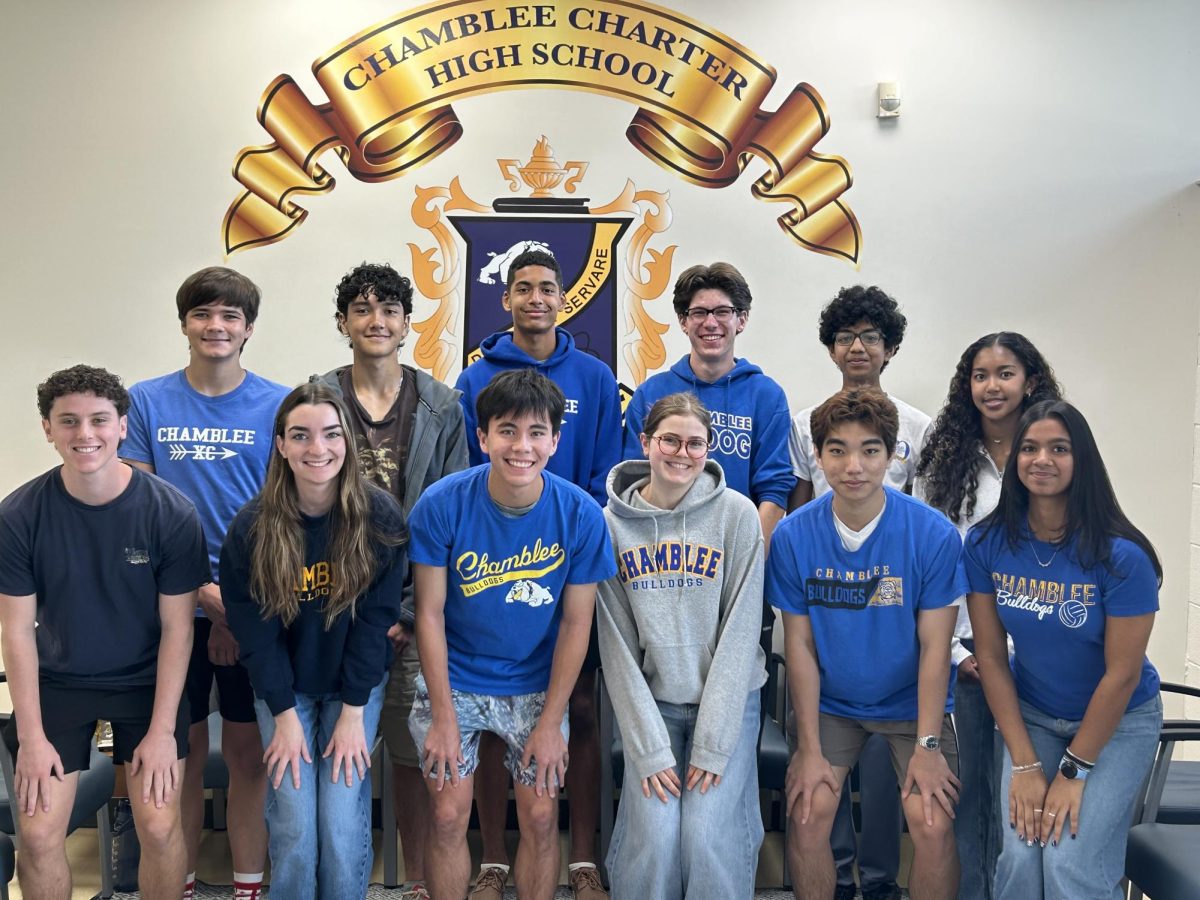The Saga of Kyle Shanahan
February 6, 2020
It’s that time of year again. The time of year when fans of the Atlanta Falcons are forced to remember the cursed Super Bowl of 2017.
It was almost three years ago that the city of Atlanta mourned one of the most painful Super Bowl losses in NFL history. Even to this day, we grieve, as the franchise will never be able to live this down. However, as Super Bowl LIV approaches, the loss stings just a little bit more. But don’t worry Falcons fans, this isn’t the story of 28-3. Neither is it the story of Devonta Freeman’s missed block, or Julian Edelman’s (it really pains me to admit this) fantastic reception. This is the story of Kyle Shanahan, the head coach of the Super Bowl-bound San Francisco 49ers.
Kyle Michael Shanahan was born on December 14, 1979 to Mike and Peggy Shanahan in Minneapolis, Minnesota. When he came along, Mike was the offensive coordinator for the Minnesota Golden Gophers. However, as Kyle grew up, Mike’s resume grew longer and much more distinguished. By the time his son graduated from high school, Mike was the head coach of the Denver Broncos, who he eventually led to back-to-back Super Bowl victories.
Needless to say, Kyle had a legacy to uphold. But after a few mediocre years with Washington and Cleveland, his coaching stock wasn’t high.
Finally, he landed an unlikely position: offensive coordinator for the Atlanta Falcons, a team with plenty of offensive talent, but only an 8-8 record in the season prior to show for it. With Shanahan, Atlanta quarterback Matt Ryan had an MVP season, our rushing game actually looked good for once, and we were the best offense in the league. I don’t know what kind of deal with the devil Shanahan made, but I’d like to know if we could make another, this time using Dirk Koetter’s eternal soul in exchange for a decent defense.
After finishing the season 11-5, we overpowered both Seattle and Green Bay in the playoffs, once again thanks to Shanahan’s offensive gameplan. Both games resulted in the Falcons scoring more than 35 points against some of the best teams in the league, further proving his elite playcalling.
Then came the now-infamous Super Bowl LI against the New England Patriots. The Falcons did what they had done throughout the playoffs, putting up 28 points over the first three quarters, while the Falcons’ defense held Tom Brady and the Pats to just 9 through the end of the third. For my sake and yours, I won’t rehash the events of the fourth quarter. In my fantasy world, they decided to cancel the game early in the fourth after Bill Belichick spiked his headset and shouted profanities at the referees, while Julio Jones was simultaneously crowned King of Atlanta. Alas, this was not the case.
After the game, Atlanta fans were in shock. We were looking for someone, anyone to blame. Almost every member of the team received some hate, including Kyle Shanahan. He was heavily criticized for choosing not to run the ball enough and run out the clock during the fourth quarter. Of course, everyone shares part of the blame, as choking away the 25 point lead was a team effort: a combination of giving up an absurd amount of points in such a short period of time and not even being able to score a field goal. One Youtuber even analyzed the game and discovered that if they had simply kneeled every play of the fourth, the Falcons could have run the clock down enough to hold on to their lead. Unfortunately, not even the elite offensive mind of Kyle Shanahan would conceive such a strategy in the fourth quarter of the Super Bowl.
Only a day after the devastating loss, Shanahan decided to follow in his father’s footsteps, taking a head coaching job in San Francisco, where Mike Shanahan had been the offensive coordinator in the 1990s. He took running back Tevin Coleman, a large part of the Falcons’ offensive success in 2016, with him. After two rebuilding seasons, the 49ers have employed an elite run-based offense(thanks, Kyle) and very good defense to get to the Super Bowl.
If there’s any skin in the game for Atlanta fans, it’s Kyle. The tougher question is: are we for or against him? On one hand, it’s nice to see his career progress. He lifted us out of 8-8 limbo into the Super Bowl, and deserves a lot of credit for that, even if it ended in agonizing defeat. On the other hand, the spiteful fan in me wants him to pay for what he did to us. Although it obviously wasn’t all his fault, he was instrumental in the Patriots’ victory and left the very next day. Now, he lifts another team from mediocrity to the Super Bowl? They must endure the same fate.
That also begs the question: is he capable of winning one now that he’s at the helm? Not only are the 49ers’ opponents, the Kansas City Chiefs, one of the most lethal offenses in football, they’re led by the proven veteran coach Andy Reid, who has a career .618 win percentage and only three losing seasons in his 21 years of coaching. Shanahan is up against a team made up of: one of the best quarterbacks in the league, the fastest receiver in the league, and an elite veteran head coach, which is the most frightening thing to me. Has he learned from Super Bowl LI? Was our loss really in vain? We’ll find out on Sunday night.
Updated 2/5/2020
I think that it is safe to say that Sunday night was a learning experience for us all. I, for one, learned that Kyle Shanahan is incapable of learning his lesson. For anyone that didn’t watch the game, I don’t know why you’re reading this, but here’s what you need to know: the 49ers were up 20-10 with 9 minutes to go in the fourth quarter, and Kyle Shanahan managed to blow it again.
At the beginning of the fourth, the San Francisco defense was rolling. Backed up to a third and 15, the Chiefs looked like they were about to have to punt again, but a 44-yard pass from Pat Mahomes to Tyreek Hill changed the tide of the game and paved the way for the first of three touchdown drives for Kansas City. The 49ers defense was utterly deflated at that point, in large part due to the offense’s inability to stay on the field. Quarterback Jimmy Garoppolo, who had been playing fantastically for the first three quarters, suddenly realized that he was handsome enough to be popular without a Super Bowl ring and completed three passes on 11 attempts, with one interception for added flavor.
I’d like to say that I wasn’t surprised. But after the third quarter, it looked like Kyle had become what he wasn’t three years ago: a dynamic coach. He had given more responsibility to Garoppolo, putting the debate over the quarterback’s skill to bed. Shifting from the run game, which was the team’s bread and butter for most of the year, had paid off. However, coaches win Super Bowls with adaptability. When the time came to run down the clock with long drives, he stuck with the passing offense. Jimmy went cold, began to throw incompletions, and the clock stood still, leaving plenty of time for Kansas City to burn San Francisco’s defense.
Some will blame Garoppolo for the complete offensive collapse. While this may be partially true, you can’t fault the head coach if the quarterback overthrows the ball. Jimmy collapsed, but it was Shanahan’s decision to keep giving him the ball instead of going back to the running game. Although the point differential was smaller than Super Bowl LI, he is still clearly at fault here.Thus, Kyle Shanahan’s quest for a Super Bowl Ring continues. Is the third time really the charm? Just don’t forget the rules of football, Kyle. Three strikes, and you’re out.











